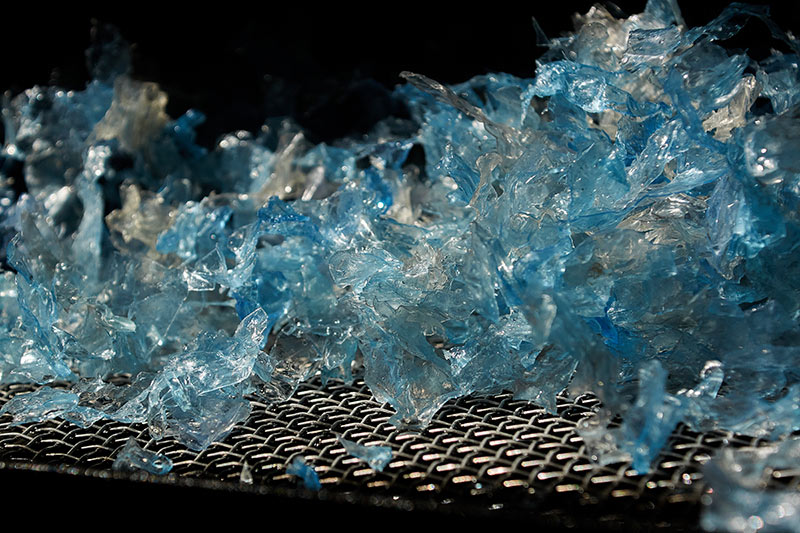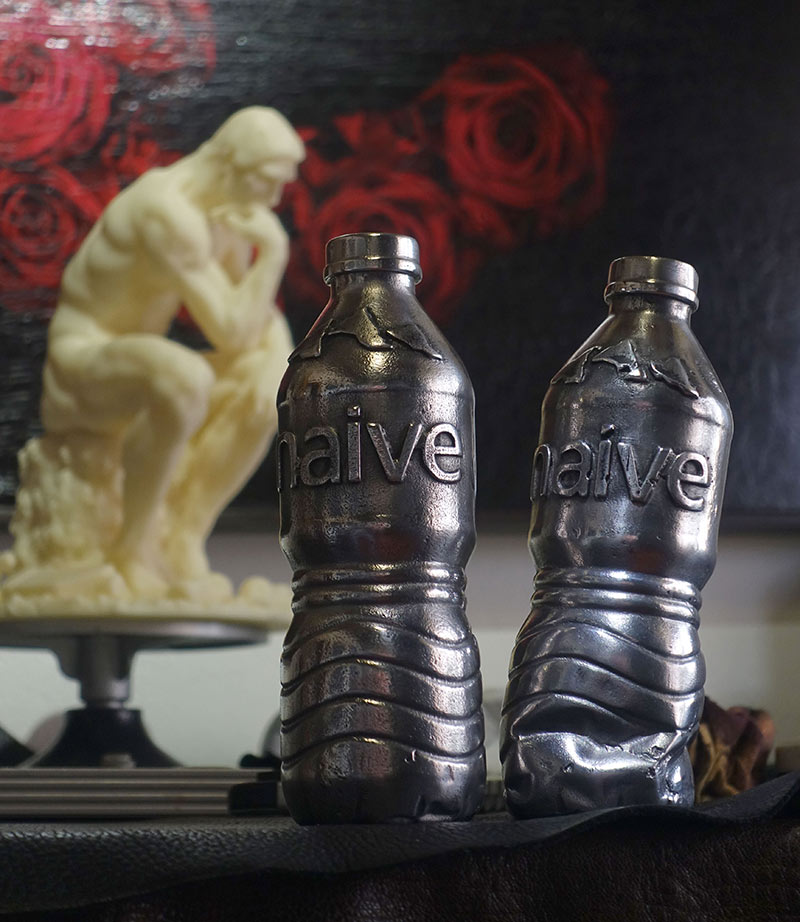Japanese scientists find 6 to 14 pieces of microplastic in each litre of tested cloud water from mount Fuji
Author: Distil Ennui | Post Date: 28-09-2023
plastic flakes being processed at the makers place artist recycling studio
Researchers in Japan have now confirmed that microplastics are present in clouds, where they are likely to be affecting the climate in ways that are not yet fully understood. The study published in the journal Environmental Chemistry Letters, Japanese scientists climbed Mount Fuji and Mount Oyama in order to collect water from the mists that shroud the peaks, then applied advanced imaging techniques to the samples to determine their physical and chemical properties.
The team identified nine different types of polymers and one type of rubber in the airborne microplastics, which ranged in size from 7.1 to 94.6 micrometres. Each litre (0.26 gallon) of cloud water tested contained between 6.7 to 13.9 pieces of the plastics. "It is now well understood that If the issue of ‘plastic air pollution’ is not addressed proactively, climate change and ecological risks may become a reality, causing irreversible and serious environmental damage in the future,” lead author of the research, Hiroshi Okochi of Waseda University, warned in his statement released this week 09/23.
"When microplastics reach the upper atmosphere and are exposed to ultraviolet radiation from sunlight, they degrade, contributing to greenhouse gasses" Okochi said.
Microplastics – which are defined as plastic particles under 5 millimetres that come from industrial effluent, textiles, synthetic car tires, personal care products and other sources – have already been discovered inside fish, peppering Arctic sea ice, and in the snows on the Pyrenees mountains between France and Spain.
However, the mechanisms of their transport to such varied locations had remained unclear, with research on airborne microplastic transport in particular being limited. “To the best of our knowledge, this is the first report on airborne microplastics in cloud water,” write the authors.
Waseda University state that research shows that “microplastics are ingested or inhaled by humans and animals alike and have been detected in multiple organs such as lung, heart, blood, placenta, and faeces”. later writing “Ten million tons of these plastic bits end up in the ocean, released with the ocean spray, and find their way into the atmosphere. This implies that microplastics may have become an essential component of clouds, contaminating nearly everything we eat and drink via ‘plastic rainfall’”.
In announcing the new research findings it is clear that emerging evidence is linking microplastics to a range of effects on heart and lung health, as well as cancers, in addition to widespread environmental harm. But as the plastics continue to breakdown in UV light they release a horrible cocktail of VOC chemicals that are linked to differing threads of life changing medical conditions includig reproduction in animals and plants.
In an earlier journal post I wrote about the vast daily production levels of plastic bottles, now at 1.5 billion a day, we all must start making changes to help adabte the problem. By using a 'Life Can' personal water bottle and by installing community level reverse osmosis public water drinking fountains, together these projects aim to restore faith back in the public water supply and strike a blow to the highly damaging drinks industry convinving us it is safer to drink water our of a single use plastic water bottle.

''The Naive Twins' recycled aluminium water bottles made from drinks cans rescued from land fill & beach cleanups.
Piece I ' Twisted ' crumpled base, standing askew.
Piece II ‘ Jezebel ’ standing straight and tall.
weight +/- 1,250 grammes - h 20cms x w 6 cms (each)
I created several sculpture works to raise the dialogue on the subject along with this short film at the opening of the Makers Place recycling studio in the Maldives, where I discuss the four big brands and present alternatives. If we continue down the same path the future is not looking so healthy, read about how the word 'convenience' is destroying the natural world with extensive data and supporting research.
now that you are here, please lets stay connected...
Join the mailing list.. Register
Telegram Channel.. DistilEnnui
Instagram.. AJHamilton.Artist
Twitter.. DistilEnnui